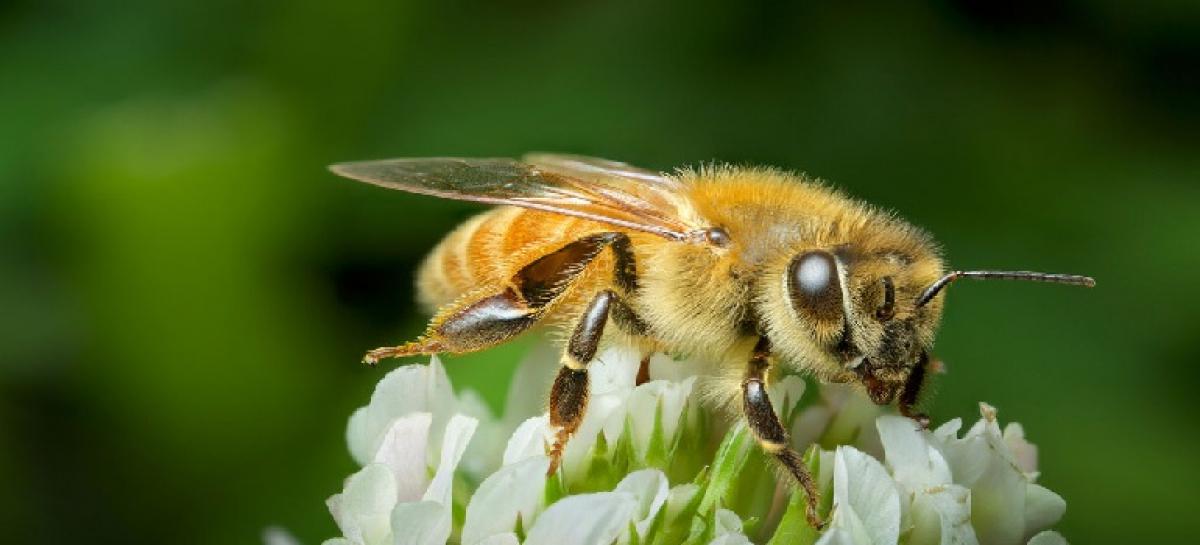Live
- Film director Ram Gopal Varma evades police questioning
- MyVoice: Views of our readers 26th November 2024
- MoU signed to implement NeVA project in AP Assembly
- Climate Change: Trump 2.0 Is Not A Fluke
- Disinformation & Disempowerment: How women’s basic rights and freedoms are being eroded all over the world
- Mahila Meekosam launched for protection of students, women
- COP 29: Rich Nations Have Their Say
- Industrial parks to be set up in every constituency
- Edu institutions to receive fee reimbursement soon
- SP orders speedy disposal of PGRS petitions
Just In

Beehive is the rich reservoir of honey. But the question that boggles the mind is that why such small insects gather so much of honey?
Beehive is the rich reservoir of honey. But the question that boggles the mind is that why such small insects gather so much of honey? Even if it is meant for feeding the larva as the queen bee lay several thousands of eggs, but the quantity of honey in the hive may not be required for feeding and rearing all the eggs. Then why the worker bees gather so much of nectar and store honey?
The above question points towards a possible management strategy. May be for self defense, honey bees accumulate huge quantity of honey in the hive. The management strategy followed by the bees however presumptive or theoretical it may be, but still the modern corporate has lots to learn from it.
During the days of evolution of honey bees, their potential enemy would have been ants or wasps or other types of small insects. The mammalian evolution has occurred much later and hence the threat from honey badger or man, the bees would not have experienced during the early days of their evolution. Perhaps the bees are accumulating large volume of honey may be to defend as well besides nursing the larvae.
When the invaders enter the hive, the predator of bees will have two major choices viz., settle with delicious honey or eat larvae. When plenty of honey is available, naturally every predator would prefer honey over larvae because hunting larvae demand some level of energy expenditure whereas settling with honey would be a better option. This management possibility would have triggered the bees to accumulate large volume of honey in the hive. By doing so, they can protect the larvae from predation.
Look at the beauty of evolution. It is always presumed that the law of nature is set on the tenets of kill or gets killed. Prey animal would never facilitate or support the existence of the predators directly or as a part of their evolution. Certainly rats have greater reproductive ability and that may be due to large number of predators around them. Rats would not have gained such high reproductive ability to support the cause of its predators. But in the case of honey bee, it looks like these tiny insects have evolved with the management strategy - offer and satisfy the predators and thereby defend your clan. The positive management strategy is quite rare in nature. The delicacy and nutritive value of honey is quite superior. In fact it would support the predators greatly. It means, the honey would equally supports the predators of the bees like the larvae of the bees.
Can we afford to support our enemy and continue to sustain successfully in the same ecosystem? Honey bees are the best examples for sending out the message of peace and harmony and positive attention strategy for self defense.
It looks like pre-vertebrate evolution was more towards harmony and peace in nature than for fierce combat. Although several defense strategies are there with bees, but still the option of offering the best to the enemies and use such positive attention strategy as best self defense we can find among bees.
It is not eliminating our competition or fooling our competition alone would script our success but offering the best to our competitor also may help one to defend is the finest management message bees convey.
Dr S Ranganathan

© 2024 Hyderabad Media House Limited/The Hans India. All rights reserved. Powered by hocalwire.com







